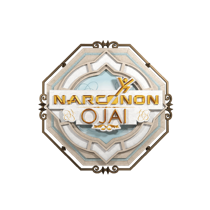Is Addiction a Moral Issue or Not?

If you read psychology or psychiatry texts on the subject of addiction, you will find yourself immersed in a study of the human brain. Various experts explain the phenomenon of addiction by defining it as a chronic disease of the brain. And while other scientists are searching for a possible genetic link to addiction, these experts have no test to diagnose this brain disease, no identifiable cause of the disease and no cure.
What they do have is prolonged treatment which very often keeps the addicted person on more addictive drugs like methadone or buprenorphine. Many rehab centers add benzodiazepines (Valium, Xanax, Librium or others) or antidepressants as well. But conflicting with the brain disease theory is the fact that many people recover from their addictions without either taking more drugs or receiving a diagnosis of this brain disease. If addiction really is a disease as we routinely understand this word, how could these recoveries happen?
The fact is that addiction has a strong moral component both in its initial stages and during recovery. This is not to deny the intense compulsions a person is subject to while addiction is active and often in early stages of recovery too. The body craves the addictive substance and the individual relies heavily on the drug to get through life each day. At this point, these influences are overwhelming.
It is generally fruitless to have a discussion about morality with an addicted person. He needs relief from the intense struggle to get through each day before he can examine his own morals. But at some point, healing will need to take place in this part of his life before he can fully leave addiction behind.
Morals at the Initial Stages
That first time a person chooses to pick up a joint, a few pills or a drink (when underage), it’s all about choice. There are a few people who state that the first time they drank, snorted a painkiller, injected heroin or smoked methamphetamine, they knew the game was over. But this is not the most common experience. For most people, it takes a fairly extended time of using a drug before they lose the power of choice.
At this early stage, morality is part of the equation. The individual makes that choice to take part in drug use initially and for a while thereafter. He could stop if he saw a need for it. As long as that is true, his morals or lack of them are a factor. An individual with strong moral fiber, good self-esteem and personal goals of his own choosing is much less likely to reach for drugs or alcohol when they are offered.
On the other hand, a person who has suffered trauma or abuse, who feels hopeless or disinterested in achieving goals, or who possesses little self esteem is more likely to use drugs to blanket these negative influences or feelings.
Why Does a Person Reach for Drugs After this Initial Use?
Picture the world of a person who is insecure or shy or who feels unappreciated by his family and friends. He has no goals he feels confident about reaching. He reaches for a joint or a drink and suddenly these problems seem to be gone. For an hour or two, he is confident and relaxed and can talk to anyone. Then the drug or drink wears off and life is boring or intimidating again. Why wouldn’t he want to return to this substance?

The more a person lacks the skills to succeed in life or the more pain he’s unable to deal with, the more likely it is that he will make a habit of this new solution. This is why strong life skills are such a deterrent to the use of drugs or alcohol. An strong individual with skills doesn’t have to cover up his feelings and problems—he can get busy accomplishing goals or simply having fun of his own choosing.
But drugs and alcohol have a deadening effect on one’s morality, enabling an addicted individual to commit crimes or harm others in the pursuit of the day’s drug supply. There comes a day when the body suffers intense cravings for the drugs, the effects of those substances have deadened one’s morality and the mind is tricked into believing that life without drugs will be intolerable. One could say that this is when addiction has fully arrived on the scene.
A Recovery of Morals is Vital for Stable Sobriety
As part of the Narconon drug and alcohol rehabilitation program, it’s vital that each person receives a significant boost in life skills, including one’s ability to make correct and moral decisions. The life skills portion of this drug rehab program teaches a person the basics of personal integrity and how it can be recovered, along with problem-solving skills to achieve more success in life. Here is what one person said when this program was complete:

I accumulated so much guilt from my actions over the years due to the harm I had caused myself, my family, my friends, my co-workers and my community that I no longer felt just guilt, I felt shame. The pain I felt was so severe I had lost the ability to confront my past. The inability to confront and deal with the baggage is what kept me using. It interfered with all of my relationships and my self-worth or integrity. Being able to take full responsibility for it was liberating, to say the least. I was no longer hiding parts of me from myself or others. I feel more comfortable in my own skin and it cleared the air with and between those I care about.
Restoring morality is a vital part of relieving guilt and giving each person a much brighter future. Without skills in this area, a person could feel defeated by life again in the future, and that could lead to a decision to use more drugs, starting the whole vicious cycle over again. When morals are strong again, a person in recovery has the best chance for a long, bright and sober future.
